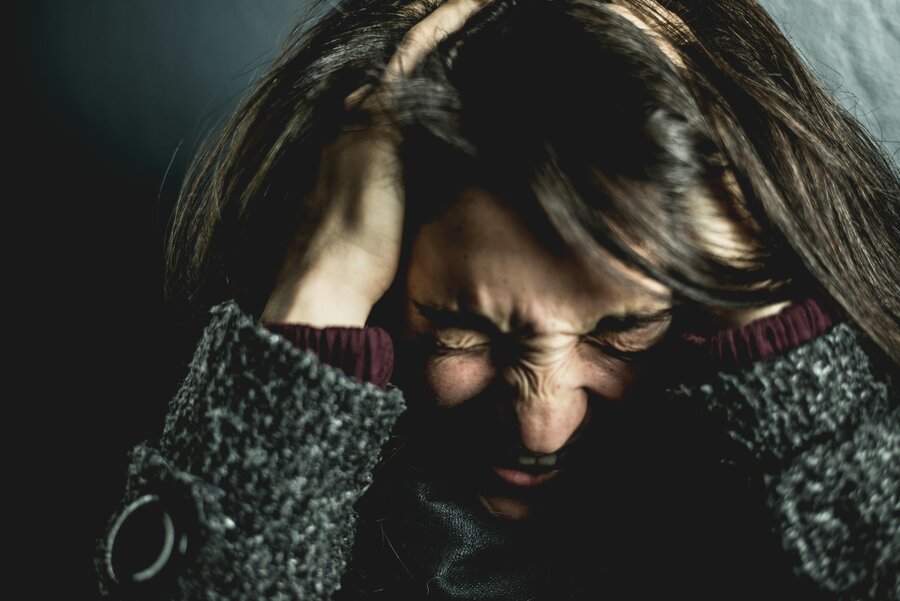For many adults, anxiety is a part of their daily lives. While the term is often used colloquially to describe everyday worries, anxiety, in its clinical sense, represents a complex and nuanced mental health condition.
Understanding What Anxiety Really Is
At its core, anxiety is more than just fleeting concerns or stressors. It encompasses a spectrum of conditions such as Generalized Anxiety Disorder (GAD), social anxiety, panic disorder, and specific phobias.
The Brain and Anxiety
The amygdala plays a pivotal role in processing emotions, including fear and anxiety. When triggered, it sets off a chain reaction, releasing hormones that prepare the body for a “fight or flight” response. In individuals with anxiety disorders, this response can be activated more frequently or intensely, leading to persistent feelings of apprehension and unease.
Negative thought patterns, often fueled by irrational beliefs or catastrophic thinking, can also contribute to the perpetuation of anxious feelings. Cognitive distortions such as overgeneralization, catastrophizing, and black-and-white thinking can create a distorted lens through which individuals view the world, heightening their sense of vulnerability.
Emotions and Anxiety
Emotionally, anxiety is a multifaceted experience. It encompasses a range of feelings, from restlessness and irritability to a pervasive sense of dread. The emotional landscape of anxiety is not static; it fluctuates in intensity and may be accompanied by physical symptoms such as muscle tension, rapid heartbeat, and gastrointestinal disturbances.
Social and Environmental Factors
While there isn’t a singular external cause of anxiety, there are certain events and experiences that can lead to anxiety or anxious feelings. High-stress environments, traumatic experiences, or a history of adverse childhood events can contribute to the development or exacerbation of anxiety disorders.
While situational anxiety is common, it’s also possible to have a genetic background that makes you more susceptible to anxiety. For many, it’s common to find that family members also have anxiety or have been treated for anxiety in the past.
Signs and Symptoms of Anxiety
Anxiety can manifest in various ways, and individuals may experience a combination of physical, emotional, and behavioral symptoms. It’s important to note that everyone’s experience with anxiety is unique, so an individual’s symptoms can range in severity. That said, here are some of the most common signs and symptoms of anxiety:
• Restlessness
• Fatigue
• Irritability
• Excessive worrying
• Muscle tension or headaches
• Sleep troubles
• Racing thoughts
• Difficulty concentrating
• Panic attacks
• Elevated heart rate
• Nausea
• Lack of appetite
Managing Anxiety
Managing anxiety involves a multifaceted approach that addresses the biological, cognitive, and emotional components of the condition. Cognitive-Behavioral Therapy (CBT), Exposure and Response Prevention (ERP), mindfulness practices, and medication are among the commonly effective tools used to alleviate anxiety symptoms and help people cope. Keep in mind that what works for one person may not be equally effective for another.
Helpful Tips
• Practice deep breathing: Deep breathing exercises, such as belly breathing, can help calm the nervous system. Practice deep, slow breaths during moments of stress. You can also try breathing techniques like box breathing or the 4-7-8-4 method.
• Stay active: Regular physical activity has been shown to alleviate anxiety symptoms by burning off the stress hormones that build up in the body. Find an activity you enjoy, whether it’s walking, jogging, yoga, or dancing. Choosing an activity that you enjoy makes it more likely that you will stick with it.
• Get good sleep: Lack of sleep can contribute to increased anxiety levels. In a research review published by the American Psychological Association, reduced sleep was found to cause an increase in anxiety symptoms, reduced positive affect/mood, and blunted arousal. Other research has shown that people who were not prone to anxiety and depression became anxious and depressed when getting insufficient sleep. For better sleep, establish a calming bedtime routine and create a comfortable sleep environment. Use blackout curtains and a sleep mask to block out light, a sound machine to block out noise, and refrain from using the bedroom for stimulating activities such as work or watching television.
• Practice Mindfulness and Meditation: Mindfulness techniques and meditation can help train the mind to stay present and reduce excessive worrying. Apps, online videos, or guided sessions can help you incorporate these practices into your routine. Mindfulness-Based Cognitive Therapy (MBCT), a type of cognitive therapy that uses mindfulness practice, can also help. MBCT helps people accept thoughts and feelings as part of being human, allowing the experience to come and go without trying to control it.
Seeking Support
Understanding what anxiety really is is the first step to better managing it. Seeking support from mental health professionals, friends, or support groups can help you better manage your anxiety. The process of sharing your thoughts and feelings, whether through therapy or trusted relationships, can be an instrumental step towards better well-being.
If you’re struggling with anxiety, don’t hesitate to reach out. Get in touch today to learn more about setting up your first appointment.



